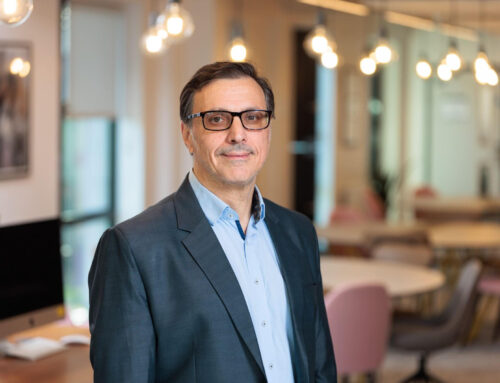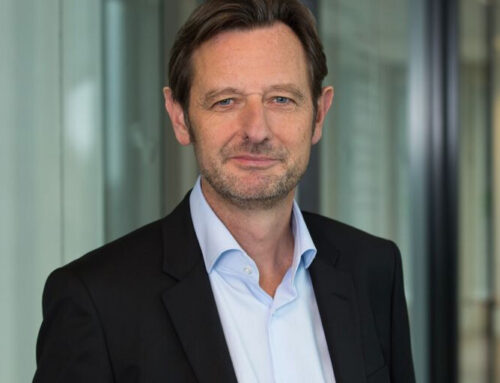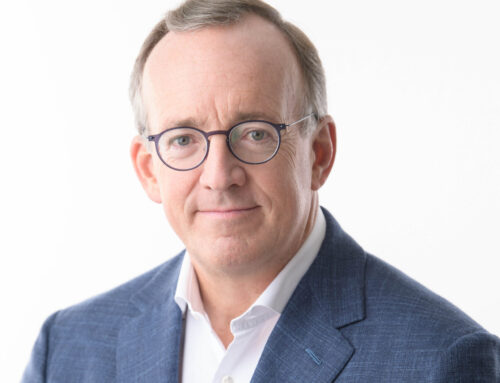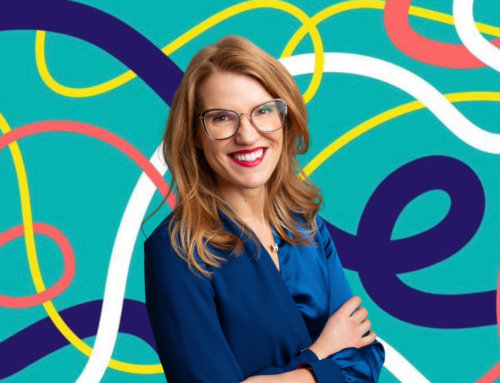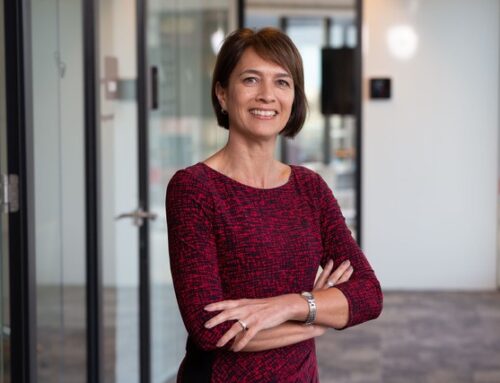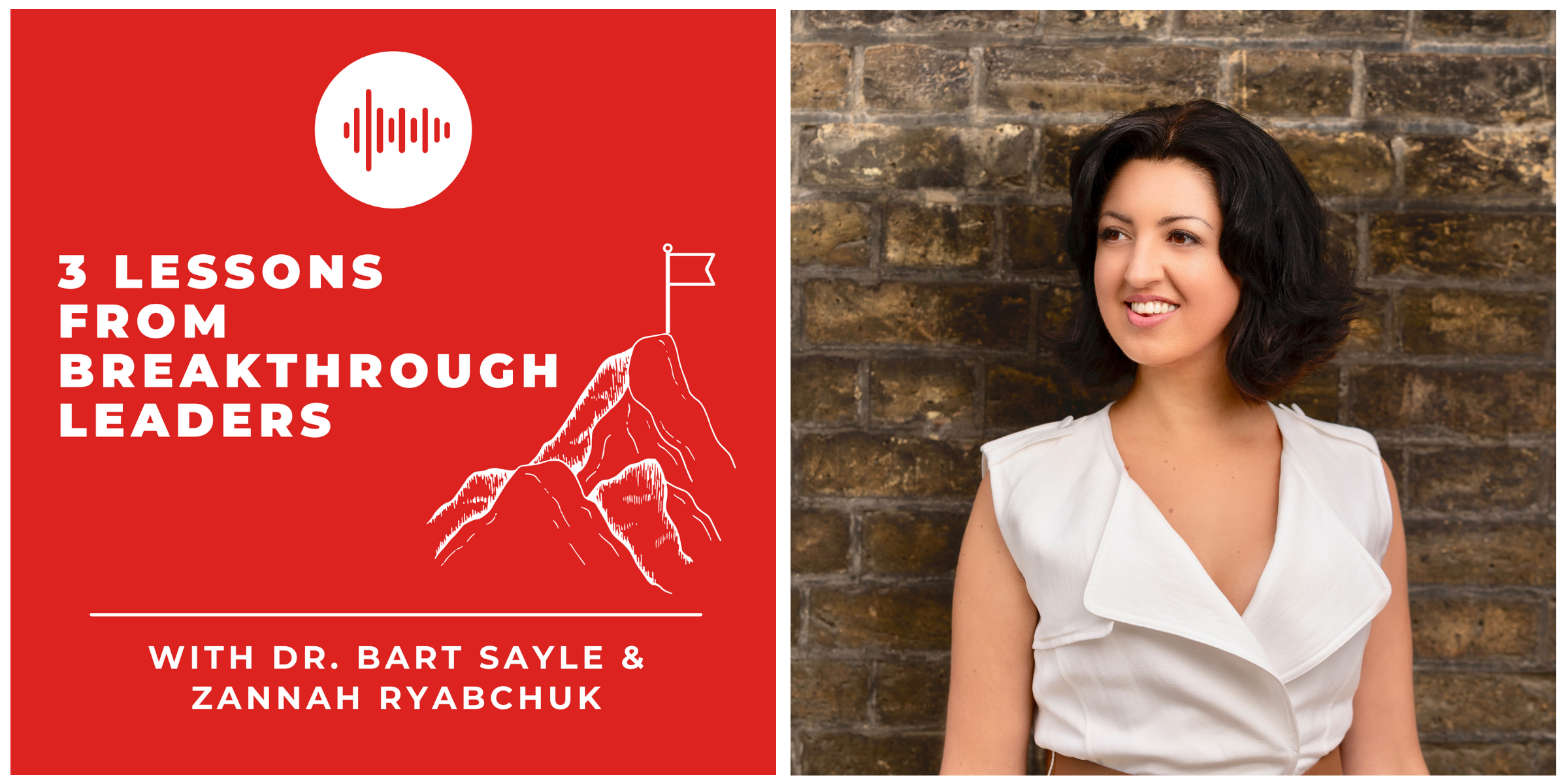 Welcome to the fourth episode of our podcast, 3 Lessons from Breakthrough Leaders!
Welcome to the fourth episode of our podcast, 3 Lessons from Breakthrough Leaders!
In today’s episode we’ll hear from Alexandra Dariescu, world-renowned concert pianist, teacher, mentor – and creator and producer of ‘The Nutcracker and I’. She is also a Cultural Ambassador of Romania, and Officer of the Romanian Crown among many other roles. Alexandra has appeared as a soloist all over the world, performing in the most prestigious concert halls.
Alex stands out as an original voice whose fundamental values are shining a light on gender equality in both her concerto and recital programmes as well as championing lesser-known works, advocating for diversity and inclusion. You can watch Alexandra play pieces by female composers below on this page. Learn more about Alex here.Listen to the S1 E4 ‘Courage & Mastery’ with Alexandra
In this episode, we will learn about these 3 lessons from Alex
- Talent requires courage
- Practice Mastery; set your own standards and meet them
- Changing the world is the ultimate motivator
This podcast was recorded during the summer of 2021.
Did you enjoy this episode? Make sure you subscribe to this podcast and please do leave us a review and rating on your player of choice. We will be updating you on upcoming episodes on our social media so remember to follow us.
Watch and listen Alexandra play pieces by female composers:
Transcript of the episode
Zannah Ryabchuk
Hello, and welcome to a brand new podcast: 3 Lessons from Breakthrough Leaders. I’m Zannah Ryabchuk, MD at Breakthrough Global.
Bart Sayle
And I’m Dr. Bart Sayle, CEO and founder at Breakthrough Global, where we’ve spent the past 30 years developing the Breakthrough methodology to help transform companies looking to reach the highest level.
Zannah Ryabchuk
And in this podcast, we’ll meet the world’s foremost leaders and creative talents, distilling their knowledge and experience into three lessons, which we guarantee will help you and your companies to unleash your potential. And Bart and I will take a moment to analyse the key takeaways and the opportunity for Breakthrough thinking that arises from each one.
In today’s episode, we’ll hear from Alexandra Dariescu, concert pianist, teacher, mentor, and creator and producer of The Nutcracker and I, she is also a cultural ambassador of Romania, and Officer of the Romanian crown, among many other roles. Alex has appeared as a soloist all over the world, performing in the most prestigious of concert halls. And today, we’ll be learning these three lessons from her.
Talent requires courage.
Alexandra Dariescu
I think it’s such a defining moment for all of us, you know there are two options. One, you stay, then you start crying and give up. Or you just smile, and you pick yourself up and take a bow and go and perform a wonderful concert and that’s what I did.
Zannah Ryabchuk
Set your own standards and meet them.
Alexandra Dariescu
In a way you have to be your best friend, and your worst critic. Because you always have to be in dialogue, you have to dance with all your emotions, you have to encourage yourself when you’re down, and you have to sort of pick the faults and try to become better for the next concert. So there’s many roles.
Zannah Ryabchuk
Changing the world is the ultimate motivator.
Alexandra Dariescu
If you really think that you can change the world and you know it inside you, then you fight until the end. And goodness me that’s what I did. Yeah, it was the ride of a lifetime.
Bart Sayle
So let’s hear from Alex. Lesson one, you always have a choice.
Alexandra Dariescu
Well, it’s yeah, going back many moons ago. But my mum was always interested in music. And she taught herself to play the guitar. And, of course, we’re talking about communist Romania. Of course, it was quite difficult in those times to do any extracurricular activities, like ballet, or music or anything like that. So my mum saved loads of money. And she managed to buy an upright piano that we still have at home. And when I was seven, she took me to the specialist music school, and I auditioned. And they saw some sort of talent in me. And they said, right, you, you’re coming in. And I don’t, I just completely fell in love with a piano. It’s that sort of instrument that the moment you enter, it’s incredible magical world, then you just feel that you want to discover more and more. So everything was very much done by intuition. And by trying things and just really following that dream from the very beginning.
Bart Sayle
I’d like to ask as you know, as well as your talent, which is amazing. From from where I sit, I can see that it takes an awful lot of courage to actually perform and perform in the venues that you perform and to keep performing. Can you tell us something about what it was like the first time you had to do that? And, you know, what were your what were your fears, as well as your inspiration?
Alexandra Dariescu
Yeah, I couldn’t agree more that one needs so much courage. And there’s an enormous amount of hard work behind the beautiful aspect of performing and travelling around the world. And so I started playing the piano when I was seven. And two years later, I was doing my debut with a big orchestra with a symphony orchestra. And I remember being the only child on stage so everyone was grown up. And my mom had made me this beautiful dress, and I walked in on stage and of course, you know, the the nerves and the emotions. And this is a very beautiful story, and in a way sort of set the path for what was what was coming. I stepped on stage. And I tripped because I was wearing a little bit of high heels and it was the first ever time when I was wearing high heels. I tripped so the music was flying from every desk, the conductor was basically thinking oh my goodness, that is absolutely it. It’s finished. My mom in the front row completely froze and I think it’s such a defining moment for all of us, you know that there are two options. One, you stay, then you start crying and you give up. Or you just smile, and you pick yourself up and take a bow, and go and perform a wonderful concert. And that’s what I did. I think that as a child is, is an incredible sort of push for the rest of my life, you know, and it was, it was good that I learned that lesson that whatever happens, and in any industry you are in, there’s going to be a lot of kickbacks, there is going to be a lot of setbacks, and you’re falling over so many times metaphorically or actually doing it. But the most important thing is to pick yourself up and to keep going. You know, never giving up is definitely one of my most important things in life. Because it’s so easy. In any domain you’re in, it’s so easy to give up when it becomes a little bit harder. But I have to say, I came out of that concert hall, which was huge. And even now when I look at pictures, I’m like, yeah, that was a big concert hall. I came out and I said to my mom and my piano teacher that I want to become a concert pianist. And I’ll tell you what, I had no idea what sort of sacrifices there were going to be involved or how much hard work there was going to be or how difficult it was, you know, when I moved from Romania, to the UK, it was just my suitcase and I I had just turned 17 I won a full scholarship to a school actually in Yorkshire in the north of England. And it was just brilliant. So again, Bart coming back to the courage yes, we need a lot of courage to keep going to pick ourselves up, to follow our dream, because it’s not just a beautiful thing. Oh, yes. Oh, isn’t it lovely when she plays the piano, actually, there is so much hard work involved and perseverance and a lot of drive that has to come from within.
Bart Sayle
So Alex, what advice would you give to younger people in the next generation who are just entering their life in terms of their dreams, and so on, what are some key pieces of advice you would give to them and pass on to them ?
Alexandra Dariescu
First of all, finding the passion in life, because if they find something that they’re truly passionate about, and they believe in, they will work really, really hard at it, if they’re stuck behind the desk doing the job, that they couldn’t care less, it’s never gonna go anywhere. And that journey can take years, you know, people do that, when they’re a lot later on in life. And there’s no perfect time, you know, you have to do this, I hate setting limits, you know, setting deadlines in terms of age, by the time you’re this, you have to achieve this or piano competitions, they usually up to 30 years old, if you’re 31, does that mean that you’ve failed or something. So it’s nothing to do with that, it’s just constantly discovering who you want to be. And I think nowadays, we’ve got a lot more freedom to choose in which field we want to go in. So that’s that’s definitely one thing. So finding your your identity. The other thing is, once you’ve found it work really, really hard in whatever industry you’re in, I think people that are truly successful at what they do, they can’t put right I finished that it’s going to close my computer. And that’s what it is. No, there’s that subconscious process that always works. And you’ll always find good ideas. And sometimes I practice so much, and this passage just doesn’t work. And then I go for a massive walk and I forget about it completely. And I think of something completely different. And then I find the solution. And it’s nothing technical, I shouldn’t have been at the piano for so many hours. And it’s the same with being in front of a computer or something, solutions come not by stressing about them, but by letting go. And another piece of advice is finding the right people that you work with. And you work with well, and they inspire you and they challenge you but you know that they’re there for you when you fall. And be it friends, family or your co-workers. I think it’s so important to blend in into into a group that you know, will make you be the best version of yourself.
Zannah Ryabchuk
I just absolutely love that story. And it’s got such a powerful message about the importance of how to fall or should we say fail and learn from it and to keep going when things get tough. I mean Alex is just so full of intentionality when she says never give up. It really struck me.
Bart Sayle
Yes, she fell but she didn’t fail. And so many people that we meet in Breakthrough have a fear of failure, when what Alex has shown is that you can push through that. And actually, by pushing through it, you get stronger, you learn from it. And it becomes a, what we would call it an anchored experience that you can draw on for the rest of your career or the rest of your life. Whenever you meet a limitation, whenever you feel that you may fail, actually, you’ll never fail by doing what Alex did. And when I think about this, falling and failing, as children, how do we learn to walk, we learn to walk by falling, and then we get up, and we get better at it, and we get skillful at it. And we don’t put that away as a big failure in our life at all, we move beyond it. And before long, we’re running.
Zannah Ryabchuk
Absolutely, that courage is so critical for business and for personal growth. Okay, back to the conversation.
Bart Sayle
Lesson two practice mastery.
Alexandra Dariescu
But it’s very much I always consider musicians like athletes, although we don’t have the same support or the same teams around us, it’s the same sort of preparation and apart from the physical one, that you have to keep your body really healthy, because you’re using so many tendons and muscles. And when you perform, it’s the icing on the cake. You know, it’s sort of, let’s say the longest you perform is about two hours. But it’s about all those 1000s of hours beforehand, when you prepare a piece, and I’ve got a huge repertoire, which is wonderful it’s very versatile, but all of that takes even more hours of practice. So in terms of that, the physical preparation is key. But then it comes the mental one, which is even harder than than the physical one. Because as a concert pianist, you are always alone. You travel alone, you practice alone, you perform alone, it’s wonderful when you perform with orchestras, but even then your time is limited. You just meet the conductor in the orchestra is literally five or 10 minutes before the rehearsals so I was considerate, it’s as if you’re on speed dating with a with them, because it’s just such a quick process. So in a way, you have to be your best friend, and your worst critic. Because you always have to be in dialogue, you have to dance with all your emotions, you have to encourage yourself when you’re down and you have to sort of pick the faults and try to become better for the next concert. So there’s many roles that a concert pianist has to take. And another one is just, you know, being so organised. I think that that discipline of right I need to practice, let’s say five or six hours today, but I’m not just going to go with the piano and think whatever, whenever my inspiration kicks in, that’s when I’m going to start doing things. No, you have to have a schedule. One of my incredible professors he was saying you have to practice being inspired. You can’t just wait to go on stage and feel oh, the divine inspiration just kicked it. No, it’s never going to work unless you work at it. And you know that saying, you know, how do you get Carnegie Hall? Practice, practice practice. Well, it’s the same with any concert hall around the world. And I think it’s the same in any industry, you need to work really, really hard. And to never stop learning. I think curiosity is one of those blessed things in life that if you are a curious person and you want to learn, then you absorb you know, you’re like a sponge at whatever age there’s, there’s never lots of people ask me, is it too late to start learning the piano or starting doing something you know, later on in life, it’s never too late. But you just really have to push yourself and push your limits. Another one of my professors was always talking about being the best version of yourself. So I usually consider every performance. It’s like an appearance at the Olympics. And it is a competition, but it’s a competition with yourself. Because there’s no one else that you compete with when you’re out there. But you know, your best version, you know that when you’re at home in your own studio, and everything is so relaxed, and there’s no delayed flights or I got once to a venue and there was no piano because they thought I was coming with my own instrument, you know, things like that. So you just have to go through any drama that might appear. And you have to keep your zen and you have to feel inspired and just put on the show that you know you’re really good at.
Bart Sayle
So the thing that comes across to me is how do you keep all of that going? I mean, what are the other things that you do to really keep that that level of commitment, not just while you’re practising for the next concert, but over time over the years that you’ve been doing this and into the future? What’s your secret for keeping that commitment going?
Alexandra Dariescu
Yeah, I’ve got a few tricks up my sleeve. First of all, I’ve had a life coach for the past 20 years, he’s been definitely a rock. And I think everyone should have a life coach, you know, because it’s about discovering yourself and discovering the world and always being in dialogue with yourself. And I think we all develop and we evolve throughout time. And it’s, it’s so important to have a pillar in our lives that , you know, you can count on someone who’s not necessarily related to you, I think a partner or a member of the family is very different. You need someone a little bit more objective, and people that will ask the right questions, so professional people that will know exactly where to steer you in what direction or just ask the right question at the right time? How do you get to your goal? How do you know what to aim for in life, and it’s really very much about discovering that identity, you know, and it’s so important to go through that process and discover and rediscover who we are, I think if it starts from within, and you really believe in your dream, and I have to say I’ve been such a lucky, privileged and very, very blessed person to know what I want to do, ever since I was a child, like, I never went through those stages of what I want to become a nurse or a doctor or lawyer or I don’t know, it was never anything else apart from concert pianist. And I never knew the implications of it. You know, I didn’t have my mum and dad or someone in the family that had been through the process. And they knew the industry, it was everything done by intuition, and it was sort of try and see if it works. So if not, try again. And there’s always the saying, you know, if a door closes up, you find another one if not you find a window, and you try to get where you want to get to. But I don’t know, I think I feel it very much inside me that this is my, this is what I’m supposed to do. It’s so nice when you get that reassurance from within. That yes, this is this is where I belong.
Zannah Ryabchuk
I think it’s so inspiring to hear you because it’s such a, you hear less and less about true vocations these days, right, I think everybody is looking more at the you know, the squiggly career where you go from one role to a different role. And by the way, I’m not saying anything wrong with that. It’s how most of us are leading our careers now, right. But there has been this common thread through the different podcasts that we’ve done this series where those of you who’ve been in business for a very long time, or who have really mastered your art form, maybe feel that the next generation are missing out on something by flitting from one thing to the next and, and that kind of FOMO that that we may be get of worrying, like, what if I’m doing this, then maybe I’m missing out on learning something over there. And they’re doing it with the absolute best of intentions. But what would your advice be to those people who are really trying to kind of dabble in lots and lots of things, rather than setting their sights on something vocational and really mastering an art form or mastering something that they’re passionate about?
Alexandra Dariescu
I don’t think there’s anything wrong in being involved in as many little things as possible. But I think with age, then it’s like in uni that you have hundreds of friends. And then the more you grow up, and you settle down, the narrower that group of friends becomes because you simply don’t have the time. So I, I think there is a time and I’m not saying that there’s a certain age that you should do this. But definitely be involved in as many things as possible and learn from everyone and learn how to do things, but how not to do things, which is so so important, fail in a few things and learn from the failures. Because this is the one way that if you understand the process, and you understand what went wrong, not necessarily what you did wrong, then you become better. Or you learn from that experience. And this will only help you in the future.
Zannah Ryabchuk
So as we mentioned on our other podcast episode with Gary McCullah mastery is so important. And I really do feel like in current times the sort of status of true mastery is becoming undervalued. I think it’s really sad that that’s the case. And I believe that in the long term, we’re going to miss out if we only are focused on what is instantly available to us.
Bart Sayle
Alex is a great example. And her story is a great illustration of mastery, because mastery is a journey. It never stops. And as we can see from Alex, it’s a combination of many things for her its talent, its courage, and its discipline. And discipline is the piece that really gets in the way for what you’ve described Zannah of wanting instant results. In our company we have a Leaders Mastery Programme where we take people through the five stages of mastery from beginner all the way through to mastery. And a critical part of that is something that Alex mentioned. It’s coaching. If you think of anybody who’s a master in their field and is recognised as a master in their field, whether it’s a sports person, whether it’s a actor, whether it’s a performer, whether it’s a writer, they’ve all used coaching, and they all have coaches, not only does that keep them progressing within the discipline, it keeps them on their journey. But it also helps them to raise their standards, because one, another key thing of mastery is to continually raise your standards. And my definition of mastery is, you’ve reached the point where now you can bring somebody else up that ladder, up that ladder of mastery.
Zannah Ryabchuk
In the last lesson, we took the opportunity to ask Alex about her multi world touring success.
Bart Sayle
Lesson three, the Nutcracker and I.
Alexandra Dariescu
Yes, Nutcracker and I is basically my baby. It was many, many years in the making. But it’s essentially a piano recital that has really cool technology and live dance. So it’s ballerina piano and digital animations. It was the most challenging and riskiest project I’ve ever done. It was the first time when I stepped into the role of a producer, a manager, I managed 27 people. I was the sole fundraiser for this, I didn’t have a team behind me that would deal with everything. So I remember doing the huge debut in Vienna, and then throughout the night, drink another three coffees and write another Arts Council application and try to fundraise. Yeah, it was it was the ride of my life really. And the most fascinating thing is that it brought three or even four generations from the same family to the same concert. And to a piano recital this never happens, you know, the average audience is not as young as we’d like them to be. So for me, it’s about building bridges and trying to introduce children to a classical music concert. And this was absolutely the perfect way. I have to say not many promoters believed in it at the very beginning, they needed to see the premiere, they needed to see that I can do it, and it’s actually going to happen. But once it happened, it was absolutely incredible because we went on three world tours in the first couple of years. The first year, we did more than 75 performances all throughout Europe, in all the biggest and most prestigious concert halls, to Australia, to China to the Emirates. And achieving that dream, you know, of getting so many kids. I mean, we had more than 70,000 kids that came to these concerts and the joy on their faces and the little girls dressing in ballerina outfits and the boys dressing up in whatever little animals and it was just extraordinary to see. What a difference making classical music a bit more accessible makes, you know.
Zannah Ryabchuk
So you mentioned that this was your first time leading sort of, was it 27 people? What did you learn about that? Because there’s a very big difference between, as you described that very solo experience of being a concert pianist, and then suddenly having to throw yourself into the position of leader, manager, coach, organiser, producer, you know, all of these different things. So what did you learn?
Alexandra Dariescu
Communication is key. That’s definitely the first thing because there was so many different parties involved. And you had to keep in touch with everyone and you just have to separate, right, I’m going to be a manager now. And I’m going to be a fundraiser and I’m going to be a pianist. And I’m going to try to learn all my pieces and, but putting everything in their tiny little box and being just very organised, I would say. And being assertive is definitely a very important thing. Because being so nice and lovely and empathising with everyone is not going to get the best results for the business. So creating timelines, and really making sure that people will respect them, because we had a few issues that could have easily put me in the biggest sort of nervous breakdown ever. But it didn’t. And I remember we had a huge meltdown moment, just a few days before the premiere that the animations weren’t ready, and they weren’t going to be until literally the morning of the show. And that was really difficult. So I think it’s setting parameters and communicate with everyone and have as many sessions as you can with a life coach. Because yeah, he really pulled me through all of that. And yeah, knowing that I can still count on my family and friends. So that was a huge support. But I’m so glad I did it. You know, there was so many people that said, you won’t be able to do this, it was a lot of money to be raised. But I think because I had it inside me. And I knew this was going to be amazing. And I promise I wasn’t thinking about the success or the amount of venues that this was going to bring me in. So it wasn’t the personal success, it was the fact that this can really do something for the wider public. And I think if it’s such a noble goal and aim, it will take you further rather than, oh, I can’t wait to have whatever 1000 concerts in the next couple of years, you know, with. That’s a bonus. That’s that’s a really incredible thing that can happen. But if you really think that you can change the world, and you know it inside you, then you fight until the end. And goodness me, that’s what I did. Yeah, it was the ride of a lifetime.
Bart Sayle
What a great story, what a great achievement. And I think this encapsulates who Alex is, and what she wants to do with her life. She wants to change the world.
Zannah Ryabchuk
Absolutely. Alex’s courage and drive is so impressive. And of course, it’s matched by her creativity. The piece that struck me was about communication and this is an absolutely critical lesson for leaders to take on. So when we work with our clients, and we work with our community, we help them to understand that breakdowns happen. That’s the nature of business. That’s the nature of life, things get in the way, no project is ever completely smooth running from beginning to end. And yet, all of these breakdowns are often underpinned by a lack of communication, exactly what Alex found in her situation. And instead, we want people to get breakthroughs and generate breakthroughs, which are always founded on a healthy communication flow. Now onto our hotseat. This is the part of the show at the end of each episode, where we ask our guests quickfire questions to learn more about their views on life, what’s important to them, and to learn about their habits for high performance. So Alex, are you ready?
Alexandra Dariescu
Oh, okay.
Zannah Ryabchuk
What brings you energy and motivation in your everyday life?
Alexandra Dariescu
Apart from coffee, tonnes of coffee, curiosity about learning new things.
Zannah Ryabchuk
Finish this sentence success is …
Alexandra Dariescu
Balance.
Zannah Ryabchuk
And if you could only take one book to a deserted island, what would it be?
Alexandra Dariescu
My Nine Lives by Leon Fleisher. It’s a brilliant book about a pianist who lost the ability of performing. And all of his life. He went to so many doctors in he never gave up and almost in his 70s, he started playing again. And it’s just so inspiring and incredible. Totally recommended.
Zannah Ryabchuk
Amazing. So social media, other ways that people can get in touch with you. If our listeners would like to find out more, or maybe ask you a question, should they go through us? Or can they find you themselves?
Alexandra Dariescu
Yeah, I’m available on every single social media platform, it’s so cool to be able to keep in touch with audiences and get new friends. And please come to concerts, I usually update my website. But I’m in the process of making a new one. So it’s quite an exciting process. I love building them myself as well. So just a bit of pushing myself with that.
Bart Sayle
Alex, you’ve been hugely inspiring to me personally, on this podcast. And you’ve covered a lot of this in what you’ve said, and your your story’s amazing, but what are the things that are important to you in life, so things that are your anchors, your values, the things that mean the most to you? We’ve already heard that your music and your performances certainly are. But what else that backs that up?
Alexandra Dariescu
I think family is the most important. And I’m very, very lucky to have a wonderful family that really supports me in everything I do. And whatever happens with all the ups and downs, they’re still there for me, and they encouraged me on my dream, it’s really a blessing to have that. And for me, dedicating your life to art is the most beautiful and noble thing that one can do. And it’s really a privilege. But in the same time you know, it’s knowing what you want to achieve through your music. So the two fundamental things for me are very much championing female composers and education. And in the in the female composer field before the pandemic. There was a very cringe statistic that throughout the world women composers were featured in 5.3% of the concerts worldwide. And I don’t know about you, but I grew up with with two female piano teachers, my mum was a huge role model. I had many women role models in my life. But I never ever heard of a woman composer. I was brought up with Bach, Rachmaninoff, Tchaikovsky, Mozart, Beethoven, you name it. I had never seen a woman play the piano in a concert. And I used to go to a concert every single week. And the horrible thing is that I never questioned it. I was dreaming to become a concert pianist, you know, a female on stage, but I had never seen it. So, but it didn’t even occur to me. So I think it’s very much about education and, and culture and how we teach our kids. So I, I know there’s a lot of progress at the moment. And there’s so many institutions that are working together for this, but it’s, it’s still quite bad. And if you think that 100 years ago, women were still not allowed to study in the Paris Conservatoire. And it was only 1992 that a woman was allowed in the Vienna Philharmonic. It’s unbelievable. And there’s there’s questions that really need answers we’re in 2021, you know, when gender equality shouldn’t be a problem. So this is something that I’m really advocating for, and I’m fighting with everything I have. And it just needs a lot of a lot of change. So I very much feel that my personal responsibilities to champion and to shine a light on those incredible women composers that have written such wonderful music, but because of the shortfalls of the past, their music has never been heard.
Zannah Ryabchuk
Thank you so so, so much, Alex. It’s been an absolute pleasure. We have really, really, really enjoyed this. I think Bart and I just been grinning the whole way through this interview because it’s been captivating listening to you.
Bart Sayle
As someone who has followed her dream and follow their bliss from a very young age and inspired and rewarded so many people. I just wish you every success and I think you’re creating a great legacy for the future.
Alexandra Dariescu
Thank you Bart that’s so so kind and thank you to you all for having me and this beautiful exciting conversation love that really, really loved it. Thank you.
Zannah Ryabchuk
Thank you for joining us for today’s three lessons and a big thank you to Alexandra Dariescu. A double thank you Alex for sharing this beautiful piece of Tchaikovsky from the Nutcracker Suite played by her. So do keep your feedback coming in. And we look forward to joining you in the new year with more Three Lessons from Breakthrough Leaders.
Transcribed by https://otter.ai

